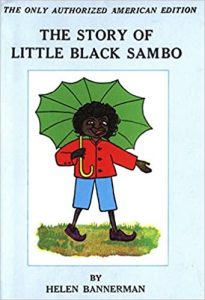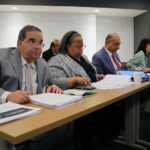Recent efforts to ban books in local and state libraries come with fears reminiscent of a dystopian sci-fi novel, and librarians at Texas A&M University-San Antonio say the list infringes upon students’ First Amendment rights.
Texas libraries find themselves in the national spotlight over disputes stemming from books and the content within them. Texas lawmaker and state Rep. Matt Krause, R-93, has attempted to control the material in libraries available to students in Texan schools.
In an interview withMark Davis, host of The Mark Davis Show, Krause said the list of banned helps schools to go through their inventory and ask if they “have something that could be in violation [of state law].”
Krause created a list of 850 books he wants removed from school libraries. The majority of books on his ban list deal with themes of race and sexuality.
The list does not legally bind schools to remove the books.
In mid-March, North East Independent School District in San Antonio reviewed 432 books and eliminated 110 titles from their libraries. The district’s review began last year in December.
NEISD uses Krause’s list to root out books deemed inappropriate for students. The review began with a book named “The Story of Little Black Sambo” in district libraries.

The book is about a Southern Indian boy who encounters four tigers and survives by climbing in a tree while the tigers argue among themselves, turning into butter by later running around the tree.
The book, published in 1899, initially portrayed Sambo as a strong minority protagonist, but when localized in the United States, his character changed into a racist caricature, according to Dashini Jeyathurai of Tides Magazine.
Librarians against removing books
Not everyone in Texas is an advocate for the removal of literature. Deirdre McDonald is head of Research Services at the Texas A&M University-San Antonio University Library.
“This is part of the wider movement to control the flow of information,” McDonald said. “Lawmakers are attempting to remove books through political means rather than legal.”
“What is safe for Americans to read?” said McDonald of the book ban and other movements to remove information such as YouTube and Facebook blocking certain content.
Books on the list include LGBTQ subject matter, like “Gender Queer: A Memoir” by Maia Kobabe.
Krause, whose district includes parts of Fort Worth, is attempting to expunge all similar material from Texas libraries.
McDonald said she believes no specific group is targeted by Krause’s list but thinks “teen sexuality” is under siege.
Emily Bliss-Zaks, arts and sciences librarian for the University Library, agrees that politicians are meddling in Texas libraries.
She preferred to type up her responses because she said the topic is so controversial.
“There are also cases of self-censorship happening from school administrators who are preemptively pulling books off the shelves for review due to political pressure and in some cases without following local book challenge procedures,” Bliss-Zaks wrote. “There are even reports that some librarians are afraid to display or purchase some titles going forward out of fear of retaliation from their district or the public.”
In her response, she mentions “an uptick in the number of book challenges in libraries. The American Library Association Office for Intellectual Freedom reported the number of reported challenges doubled in 2021 from 2020,” Bliss-Zaks wrote.
Bliss-Zaks said the push, especially here in Texas, may be caused by recent state legislation that restricts the ways teachers teach history.
“Some bills even go as far as prosecuting or fining librarians for allowing certain access to certain titles,” Bliss-Zaks wrote. “Since it’s election year, this is why we are seeing this push now.”
The Texas Library Association supports the right to read
Another adversary to Krause’s book ban is The Texas Library Association. TLA believes students have the right to “free inquiry and the equally important right to form their own opinions.”
The TLA created the organization Texans for the Right to Read in 2022 to bring educators and parents into the fray against book banning.
“Possibly the most important skill students learn is how to develop a curious mind and think critically about a broad spectrum of subjects,” TLA President Daniel Burgard said. “Removing books based on the subjective opinions of elected officials has no place in our state or our democratic republic.”
Bliss-Zaks agreed that people have the right to read in their local public libraries.
“I agree with both the American Library Association (ALA) and the Texas Library Association that the freedom to read is protected by the First Amendment of the Constitution,” Bliss-Zaks wrote. “Everyone has the right to read, learn, and explore ideas free from censorship based on viewpoint.”
Along with the TLA, Dr. Nicole Carr, assistant professor, says banning books can deny students the ability to learn historical facts.
Texas Gov. Greg Abbott supports Krause’s book confiscation. Abbott has said he and Krause are protecting Texas students from viewing “pornography.”
In a November letter written to the Texas Association of School Boards, Abbott wrote, “Collectively, your organization’s members have an obligation to determine the extent to which such materials exist or are used in our schools and to remove any such content.”
McDonald said the involvement of politicians in school libraries is unnecessary and a way to use “political power into doing work outside the scope of what [politicians] work for.
“There’s a moral panic going on,” and politicians need to concentrate on more significant problems like “health care and unemployment,” McDonald said.
The outcome of the book ban is unclear as both sides are in an all-out war and Texas libraries are the battleground.
For more information on the TLA’s efforts to combat the ban, visit their official website.
The censorship battleground expanded to Llano County, Texas
The censorship battleground included Llano County, and Brigid Cooley, former Texas A&M University-San Antonio student and Mesquite editor, recounts her experience covering it. To read more, click here.






